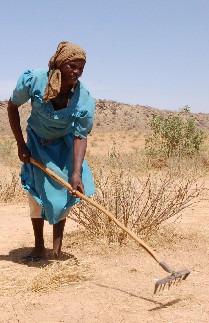 Recently the Permanent Interstate Committee for Drought Control in the Sahel (CILSS) partnered with the The Gambian government to discuss the agricultural and food prospects on the Sahel and East Africa. After the three day meeting, the Agricultural Prospects in the Sahel and East Africa statement was published in collaboration with FAO, WFP, and FewsNet. An assessment was made for the 2011-2012 harvest since the onset of the rainy season, and to evaluate the prospects for harvest in the 2011/2012 growing season in a qualitative way (figures based on assumption) amongst other pertaining issues. This document serves as an early warning information for African governments and donors to respond to the needs of their respective areas and may plan timely actions.
Recently the Permanent Interstate Committee for Drought Control in the Sahel (CILSS) partnered with the The Gambian government to discuss the agricultural and food prospects on the Sahel and East Africa. After the three day meeting, the Agricultural Prospects in the Sahel and East Africa statement was published in collaboration with FAO, WFP, and FewsNet. An assessment was made for the 2011-2012 harvest since the onset of the rainy season, and to evaluate the prospects for harvest in the 2011/2012 growing season in a qualitative way (figures based on assumption) amongst other pertaining issues. This document serves as an early warning information for African governments and donors to respond to the needs of their respective areas and may plan timely actions.
Recommendations
For countries:
- To take necessary steps to ensure smooth conduct of the joint assessment missions of the agro-pastoral season;
- To reduce interventions on the functioning of the markets and cross-border trade flows;
- To keep watch on the cereal and livestock markets in order to detect early warning signs of market dysfunctions.
- To monitor the situation of populations displaced by the socio-political crises.
To the regional information and early warning systems (CILSS/FAO/FEWS NET):
- To ensure close monitoring of areas clearly identified as production risk areas and in short of fodder supplies;
- To strengthen the capacity of state structures in data collection and analysis;
- To strengthen food and nutritional situation monitoring,
- To maintain surveillance on the desert locust.
Lamin Kaba Bajo, the minister of Fisheries, Water Resources and National Assembly Matters, called the meeting critical, saying it "supports the view of putting up a mechanism to examining the best possible responses for curbing food crises in the region." Bajo pressed for Sahelian heads of state in the Western Africa region African and governments to decide to adopt the Detailed Programme for the Development of Agriculture in Africa (DPDAA), being that is a frame work that can produce agricultural development and food security in a quicker fashion. In 2005, ECOWAS country participants adopted a common agricultural policy (ECOWAP) while the Sahelian region is looking for in that it promotes sustainable agricultural development more than any other, because of the economic strength of west African countries.
A vast amount of people in the West Africa and the Sahel region suffer from malnutrition and food security. (View Article: A Spacial Analysis of Child Nutrition in West Africa.) It is hoped that the recommendations and favorable conditions aid in selecting the right action points across the Sahel.
 Recently the
Recently the